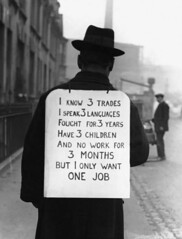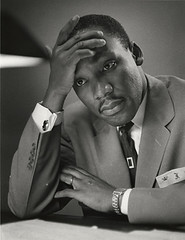
Back-alley cosmetologists prey on transwomen in New York City, peddling black market silicone injections, which temporarily enhance feminine curves at great risk to the clients’ health, Laura Rena Murray reports in the New York Times. In February, a young woman died shortly after receiving black market silicone injections in Philadelphia. In July a young transwoman* named Gabrielle Aguilar died in a Queens hospital shortly after visiting a unlicensed “pumper,” as these practitioners are known.
Why would anyone seek out an unlicensed operator to pump industrial grade silicone into her buttocks and plug the holes with Krazy Glue, as one of Murray’s subjects did? With great compassion, Murray captures the yearning that these women have for something that most of us take for granted, a body that fits with our sense of ourselves:
Zaira Quispe, 42, said she knew as a child that she was a girl, though she had been born male. She picked up a photo that she kept on the windowsill above her bed and held it out as proof. It’s a picture of herself as a smiling baby, naked and with legs crossed, concealing genitals. “Look,” she said, “even then I was trying to hide it.”
Ms. Quispe, an Ecuadorean immigrant who came to New York at age 9, was determined to get the curves that would make her look more feminine. But she lacked health insurance or the money to pay for surgical procedures that would provide them; they can cost as much as $70,000. So she tried something else: she went to a so-called pumper, a person who illegally injects silicone to modify the body.
Ms. Quispe was initially delighted with the results, but over time the liquid calcified and spread, causing infection, disfigurement, and constant pain. In 2002, a doctor told her that the liquid she thought was silicone was actually industrial oil. He said the oil had insinuated itself so deeply into her flesh that there was no way to surgically remove it without cutting out huge chunks of her hip and buttocks muscles. Fearing the treatment would be more debilitating than the disease, he told her to go home and take painkillers instead.
So, Ms. Quispe returned to her tiny apartment in Brooklyn’s Farragut Houses to live as a virtual shut-in. She’s bedridden for most of the day. Besides, she says, she’d rather stay indoors than endure the stares of her neighbors. But she may not be able to avoid surgery forever. The oil has riled her body into a constant state of inflammation. This summer she was hospitalized for bloodthinner injections to dissolve potentially lethal blood clots before they could travel to her heart.
Murray contrasts Ms. Quispe’s hardships with the opulant lifestyle of S, a New York City pumper who says she brings in $10,000 a week injecting clients with medical grade silicone she acquires on the black market:
The evidence of her success crowds the spacious two-bedroom apartment she rents in Brooklyn. The exterior of her building fits in with the dilapidated neighborhood. The front door is missing a doorknob, and the windows are boarded up and painted a mud brown, concealing the opulent interior. Inside her apartment, gold candleholders, ceramic vases, crystal and gleaming white cherubic angels sparkle under elaborate chandeliers. Thirteen Tiffany-style lamps clutter her shelves, and dozens of porcelain plates hang in rows on her walls.
One corner of her dining room contains 10 bird cages stacked in two columns from floor to ceiling, the sides of the cages covered in tin foil and each cage holding three to six canaries, finches and other small birds.
The living room is crammed with stacks of boxes containing items that she plans to move to a house she said she recently bought in Puerto Rico.
S, a transwoman whose face bears pumping, says that she’s helping her clients, unlike some of the 50 or so illegal pumpers she estimates to be operating in the city. Not everyone is willing to make fine-grained distinctions based on craftsmanship:
“Pumpers are preying on desperate people who are poor,” said Pauline Park, president of Queens Pride House, an organization that provides services to lesbian, gay and transgender people. “They’re basically killing people and profiting from it.”
Murray notes that many pumping clients are underage. For some transgenderd youth, pumping is a quick and relatively cheap way to look more feminine. Many see it as stopgap measure on the road to a more expensive sex reassignment surgery. Ms. Quispe ruefully estimates that if she’d saved the money she spent on silicone injections, she could have afforded her surgery by now.
A lesser reporter might have focused exclusively on the sensational details of pumping, whereas Murray is careful to explain the connection between this disturbing phenomenon and the widespread discrimination and social dislocation that transgender people face:
Transgender youth cannot be treated by a doctor without parental consent, and many of them are estranged from their families because of their gender identities. According to a 2011 discrimination report released by the National Center for Transgender Equality and the National Gay and Lesbian Task Force, 19 percent of transgender people experienced homelessness because of their gender identity, 57 percent were rejected by their families, and 41 percent had attempted suicide.
Murray resists the temptation to demonize the pumpers or scold their clients. She consults experts who explain that the black market is a symptom of a larger problem, namely, transwomen being shut out of the medical system because of poverty, bad insurance, family breakdown, and other systemic factors. Hers is an excellent story that deserves to be widely read.
*Terminological note: “Transgender“ describes a person whose gender identity differs from the sex they were assigned at birth. A transwoman, short for “transgender woman,” is someone who was labelled as male at birth but who identifies as female. “Transgender” is a synonym for the outdated term “transsexual.”
[Photo credit: Photo of a generic syringe, for illustration, by ZaldyImg, Creative Commons.]











